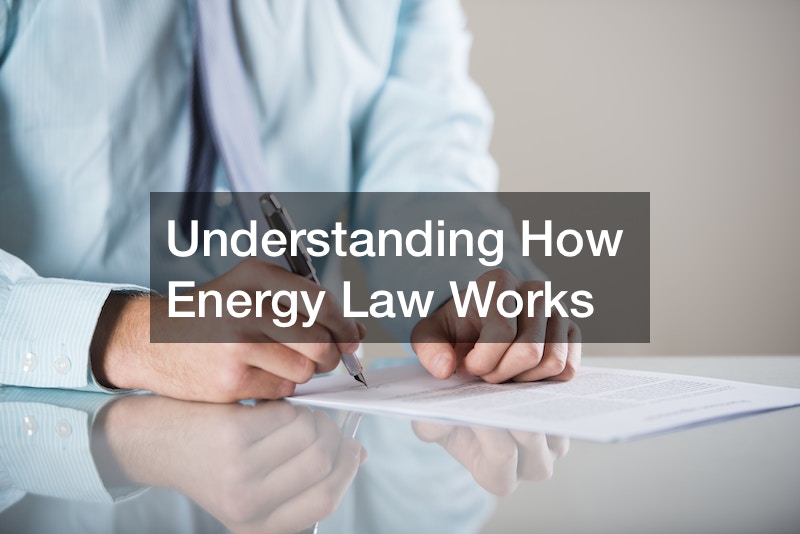

Energy law encompasses the legal framework that governs the creation, enforcement, and questioning of regulations about energy usage. It covers a wide range of laws that oversee the generation and extraction of energy, as well as taxation related to energy consumption. Energy companies and the general public need to navigate these laws, which govern the sale, utilization, and conservation of energy resources.
It’s surprising how much energy laws and regulations affect our daily lives without us even realizing it. Every time we fill up our vehicles with gasoline, we are subject to energy taxes. Vehicle sales and license plate renewals also involve fees paid to our respective states.
Using electricity in our homes originate from power plants that have adhered to regulations to conduct their operations. These laws are present at the federal, state, and even local levels and can influence international relations.
What Specific Areas of Energy are Under Regulation
Nuclear Power
Nuclear power is a major focus of federal regulation due to its significance to the U.S. economy and national security. The utilization of nuclear power for energy generation and its implications for national defense are overseen by the U.S. Nuclear Regulatory Commission. This regulatory body ensures the safe and responsible use of nuclear power in civilian and defense-related contexts.
Oil and Gas
The regulation of oil and gas primarily occurs at the state level, with each state having its level of energy oversight and regulation. However, the extent of regulation varies significantly depending on the natural resources present within each state.
States such as Alaska and Texas, possessing abundant oil and gas reserves, tend to have more comprehensive regulations at the state level. These regulations govern the processes of extraction, refining, transportation, and the final sale of natural resources, dictating how individuals and corporations may engage in these activities.
Clean Energy Development
The Energy Policy Act of 2005 supports the development of clean energy through tax incentives, loan guarantees, and daylight savings time extension. It extends existing rebates and incentives for green energy use. The Cash for Clunkers program, introduced in 2009, encourages replacing fuel-inefficient vehicles with eco-friendly models.
The U.S. federal government further promotes clean energy through the Department of Energy’s Office of Energy and Renewable Energy, which invests $2.3 billion annually in hybrid technology, research, and energy production innovations.
International Policies
This type of law extends internationally, as politicians and federal employees collaborate with foreign governments to establish and enforce energy-related agreements. These agreements are deliberated in international forums like the U.N. Framework Convention on Climate Change, focusing on energy usage and climate concerns.
Global leaders also work on policies regarding nuclear technology and weapons, exemplified by the International Agreement on the Non-Proliferation of Nuclear Weapons. These collective efforts promote cooperation and address crucial global energy and security issues.
How Energy Lawyers Practice Their Field
This specific practice encompasses a wide range of roles and responsibilities undertaken by energy attorneys across the United States. These legal professionals operate in both public and private sectors, working on various aspects related to energy.
Private practice energy attorneys often serve as in-house counsel or work for large corporations. Given its diverse legal requirements, energy companies, typically established entities with significant operational demands, rely on legal teams comprising multiple lawyers and ample resources. Large law firms and in-house attorneys possess the expertise and capacity to assist their clients in navigating the intricate landscape of the law.
Many energy attorneys are employed by the U.S. Department of Energy or state agencies responsible for regulating energy production and consumption. While federal energy attorneys are primarily based in Washington D.C., their involvement spans national and even global levels, participating in litigation settlement, inspections, and meetings.
Geographically, they tend to gravitate toward areas abundant in natural resources, as these regions are most likely to house energy companies that require legal representation. Energy companies also rely on lawyers based in Washington D.C. to advocate for favorable laws and policies through lobbying efforts.
The Significance of Engaging a Skilled Energy Attorneys
Engaging a skilled energy attorneys is crucial in navigating the complexities of energy law. With their comprehensive knowledge and expertise, these energy attorneys offer invaluable guidance and resources and ensure regulatory compliance, protect client interests, and advocate for favorable outcomes. From negotiating contractual disputes to safeguarding landowner rights, a competent energy attorney such as Judge Thomas B. Griffith plays a pivotal role.






